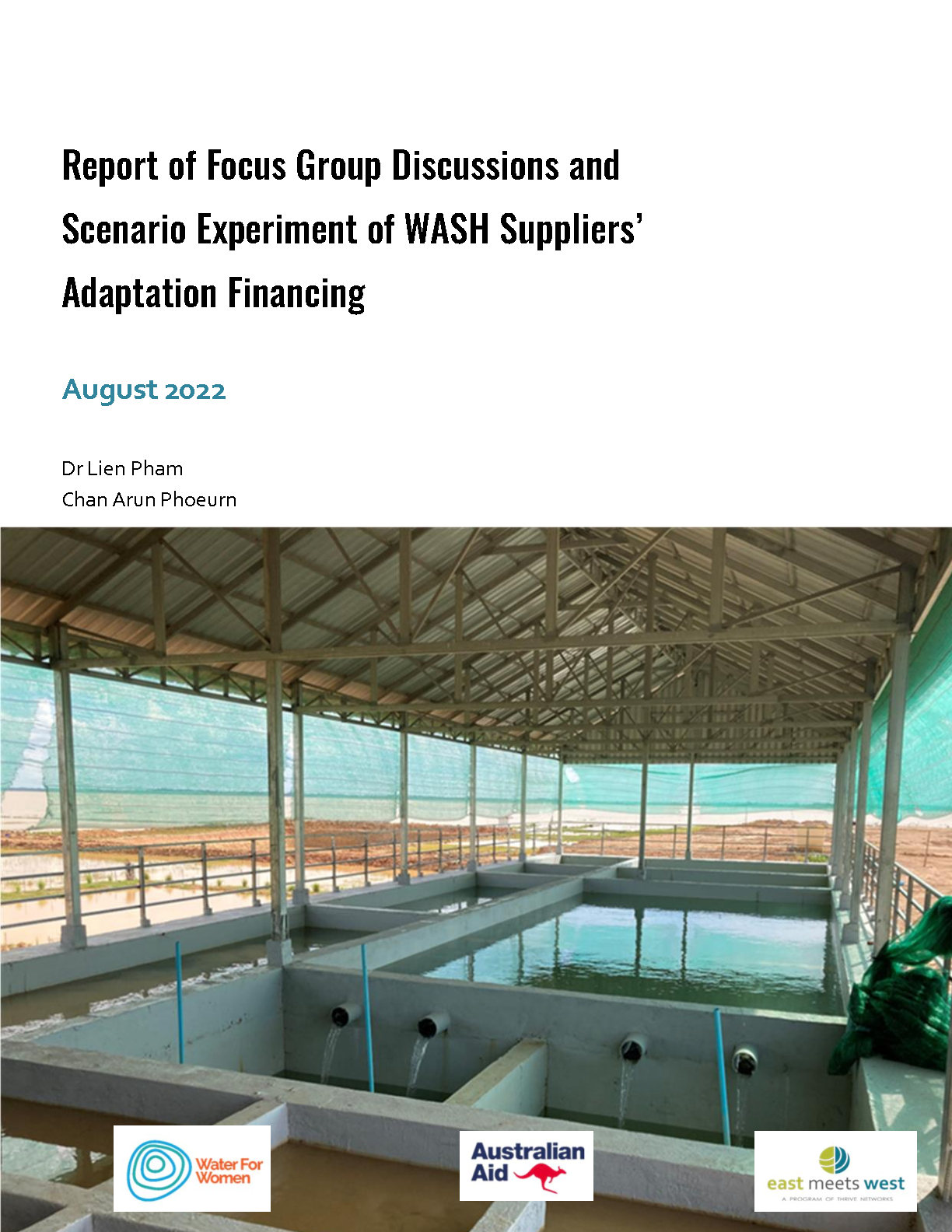This 18-month research project (July 2021-December 2022) was funded by DFAT under the Water for Women Fund and implemented by the MERL team in Cambodia. The research project had two components. The first component involved conducting surveys, interviews, and collecting film and photo stories to examine the lived experiences of climate hazards by marginalised households and climate adaptation responses at the household, community, and institutional levels. The research analysed the relationships between characteristics of marginalisation such as wealth, gender, age, disability, and cultural conditions including gender norms, in the communities' experiences of climate-related hazards and adaptation responses.
The second component of the research project explored the motivations of water and sanitation enterprises in delivering resilient WASH products and services for marginalised communities. Through scenario field experiments, the research team investigated the types of finance options and WASH products that the enterprises preferred and considered feasible to deliver.
This website shares stories, reports, film clips, and photo stories that provide insights into the lessons learned and findings from the research. The aim is to provide insights into resilient thinking and adaptive practices that can be used to improve the delivery of WASH services for marginalised communities.





